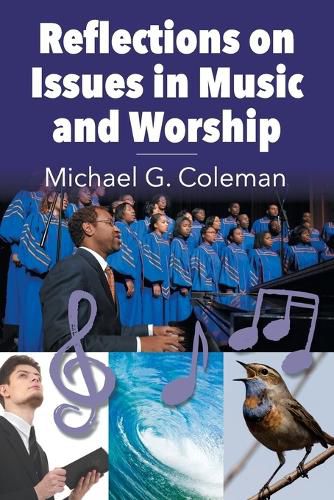Readings Newsletter
Become a Readings Member to make your shopping experience even easier.
Sign in or sign up for free!
You’re not far away from qualifying for FREE standard shipping within Australia
You’ve qualified for FREE standard shipping within Australia
The cart is loading…






This title is printed to order. This book may have been self-published. If so, we cannot guarantee the quality of the content. In the main most books will have gone through the editing process however some may not. We therefore suggest that you be aware of this before ordering this book. If in doubt check either the author or publisher’s details as we are unable to accept any returns unless they are faulty. Please contact us if you have any questions.
Lest you think that Dr. Coleman has quit preachin’ and gone to meddlin’ in this sensitive topic of music, and especially church-appropriate music, please give this book a chance. Coleman draws from many sources, both Seventh-day Adventist and non-Adventist, to explain just how the type of music we use in church worship services affects our worship experience and our Christian experience.
When addressing the current trend of Contemporary Christian Music (CCM), he assures the reader that he is not against all CCM, but cautions against using a song just because it may be popular or may draw a certain crowd into the church. He shows how merely the use of contemporary music may attract people to attend church, but it doesn’t necessarily lead to a true conversion or the intentional discipling of those people.
Dr. Coleman states, The seeker sensitive model involved a de-emphasis of traditional methods of evangelism and discipleship such as doctrinal preaching, calling for repentance from sin, and committing oneself to give Bible studies; rather, it focused on innovation and meeting the wants of people–often dubbed felt needs … The seeker sensitive model also caused people to view Christianity as something cool and made them feel comfortable in dressing down to attend church worship service, sometimes in jeans and a t-shirt. However, it resulted in producing spiritually weak Christians who were pastor-dependent and not committed to making disciples for Christ.
Music ministry leaders and anyone who enjoys music in church will learn to be a little more discriminating in the choice of music after gaining the insights provided in this book.
$9.00 standard shipping within Australia
FREE standard shipping within Australia for orders over $100.00
Express & International shipping calculated at checkout
This title is printed to order. This book may have been self-published. If so, we cannot guarantee the quality of the content. In the main most books will have gone through the editing process however some may not. We therefore suggest that you be aware of this before ordering this book. If in doubt check either the author or publisher’s details as we are unable to accept any returns unless they are faulty. Please contact us if you have any questions.
Lest you think that Dr. Coleman has quit preachin’ and gone to meddlin’ in this sensitive topic of music, and especially church-appropriate music, please give this book a chance. Coleman draws from many sources, both Seventh-day Adventist and non-Adventist, to explain just how the type of music we use in church worship services affects our worship experience and our Christian experience.
When addressing the current trend of Contemporary Christian Music (CCM), he assures the reader that he is not against all CCM, but cautions against using a song just because it may be popular or may draw a certain crowd into the church. He shows how merely the use of contemporary music may attract people to attend church, but it doesn’t necessarily lead to a true conversion or the intentional discipling of those people.
Dr. Coleman states, The seeker sensitive model involved a de-emphasis of traditional methods of evangelism and discipleship such as doctrinal preaching, calling for repentance from sin, and committing oneself to give Bible studies; rather, it focused on innovation and meeting the wants of people–often dubbed felt needs … The seeker sensitive model also caused people to view Christianity as something cool and made them feel comfortable in dressing down to attend church worship service, sometimes in jeans and a t-shirt. However, it resulted in producing spiritually weak Christians who were pastor-dependent and not committed to making disciples for Christ.
Music ministry leaders and anyone who enjoys music in church will learn to be a little more discriminating in the choice of music after gaining the insights provided in this book.